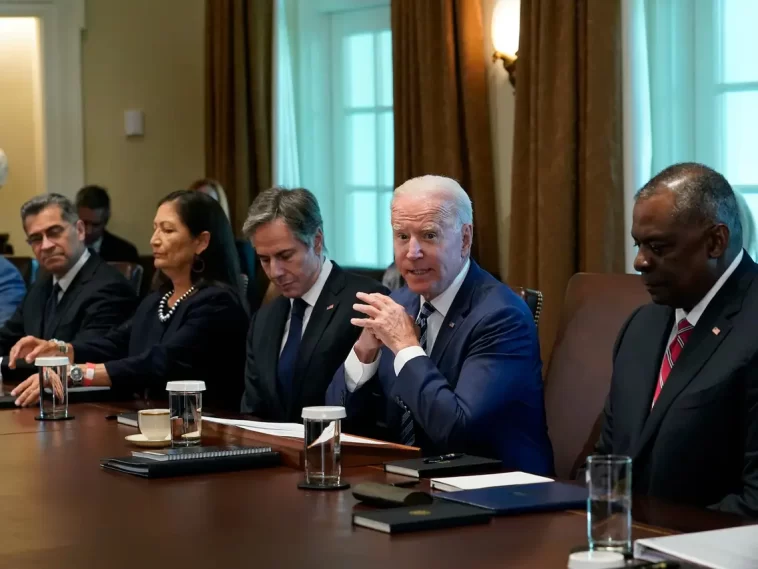Two years into President Joe Biden’s term, US Secretary of State Antony J. Blinken will visit India for the second time, representing a government that has already had a major impact on US-India relations.
Bill Clinton’s 2000 tour to India started the Biden team’s legacy. George W. Bush’s dedication to the nuclear deal enhanced this.
Barack Obama, the first American president to attend Republic Day as main guest, sustained it. The mercurial Donald Trump, who stayed predictable on India and whose strategic shift on China boosted the relationship with Delhi, carried it forward.
Thus, Biden is the sixth US president to support India politically. However, his time marked a change.
After a tumultuous transfer of power, there were concerns about India’s internal trajectory and perceived role in American politics.
US-China policy was unclear. US departure from Afghanistan raised suspicion. The Russian assault of Ukraine tested bilateral relations like no other in the past two decades.
Also read: UIDAI Introduces Artificial Intelligence-Based Fingerprint Authentication for Aadhaar
Biden and Blinken have recognised India’s constraints, accepted its unique status, respected India’s worries, made Delhi a player in global conversations, handled differences maturely, and taken steps to redefine the relationship. Biden has focused more on India than any other president in his first two years. Three main sources raised concerns about a Biden presidency for India.
Key progressive Democrats had criticised India’s internal political trajectory under the Bharatiya Janata Party (BJP).

After the Kashmir and Citizenship (Amendment) Act rulings in 2019, Hill Democrats and presidential candidates harshly criticised India.
While Obama, a Democrat, dealt with the BJP-led government, as internal polarisation grew in India and concerns deepened about its perceived “democratic backsliding,” there was uncertainty about how a new Democratic administration would engage with a “new India”.
While American officials, especially the State Department’s office of religious freedom, and members of Congress may publicly criticise Indian politics, Biden and Blinken have not let their ideology influence their assessment of India.
The systemic acceptance that Narendra Modi is India’s legitimately elected prime minister with overwhelming support provides political stability in a volatile neighbourhood. India’s policy shifts offer American national security and economic goals.
The shared anxiety about China makes the strategic relationship with India too essential to risk.
Officials know the US and India are imperfect democracies, but they must cooperate to cope with a communist China.
Pragmatism won for other reasons. In this post-unipolar era, the US knows it doesn’t have the tools to back up critical public statements with real change, and if it intervenes in India, it risks alienating public opinion.
Its experience with the Saudi regime—Biden came to office pledging to teach the regime a lesson for its alleged role in the killing of writer, activist, and US permanent resident Jamal Khashoggi only to visit Riyadh to make up—illustrated the limits of American power.
After Donald Trump and January 6, the US lost moral power to lecture other nations on democracy.
Reality won. While there are private concerns and Indian diplomacy spends a lot of time in damage control due to authoritarian and intolerant political actions at home, India’s political regime did not constrain the partnership.
India’s role in American affairs caused the second concern. The Howdy Modi event in Houston and the Modi-Trump rally in Gujarat in an election year made key Democrats wary of the BJP’s apparent Republican bias.
In early 2020, Indian envoy to the US Taranjit Singh Sandhu prioritised bipartisanship. After the Indian nuclear tests in the late 1990s, Sandhu served as deputy head of mission from 2013 to 2016. Both times, Democrats were in power, and Sandhu reconnected with his old friends, including in Joe Biden’s foreign policy team. Blinken and Biden’s future national security advisor Jake Sullivan sent messages of solidarity and support on India’s Independence Day, August 15, 2020.
On November 8, 2020, India sent its strongest consensus signal to US politics. Modi tweeted Biden’s “spectacular win” while Trump questioned the election’s legitimacy. Biden called Modi nine days later after noting that India had honoured the democratic result and not been swayed by Trump.
On January 6, when Trump incited a mob to attack the US Capitol, Modi wrote again that he was “distressed” by the rioting and violence in Washington DC and stressed the importance of peaceful transfer of power and democratic processes.
India’s sound political judgement throughout the American electoral process mitigated the harm. Since then, India has engaged with both major parties. It helps that foreign affairs minister S Jaishankar may be the best on US politics in India.
Deputy NSA Jon Finer called Sandhu one of the “most efficient ambassadors in Washington”. Take the past two weeks as an example of his deep understanding of US House shifts. House speaker Kevin McCarthy welcomed Sandhu to his home state of California and pledged to visit India during his tenure, while Senate majority leader Chuck Schumer, a Democrat, led the most powerful Senate group to India.




